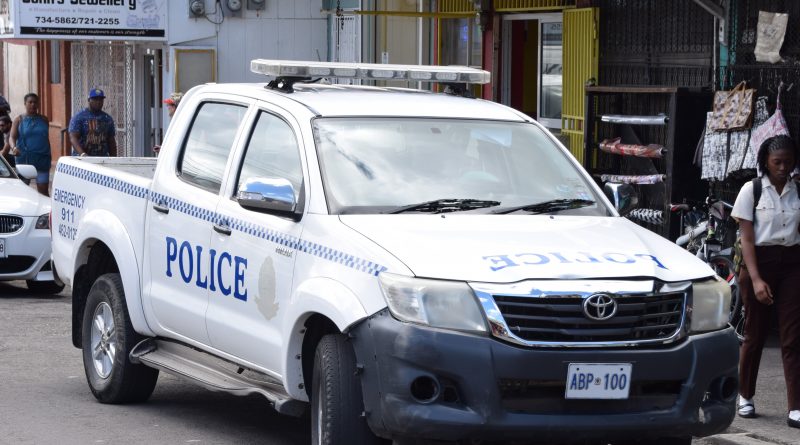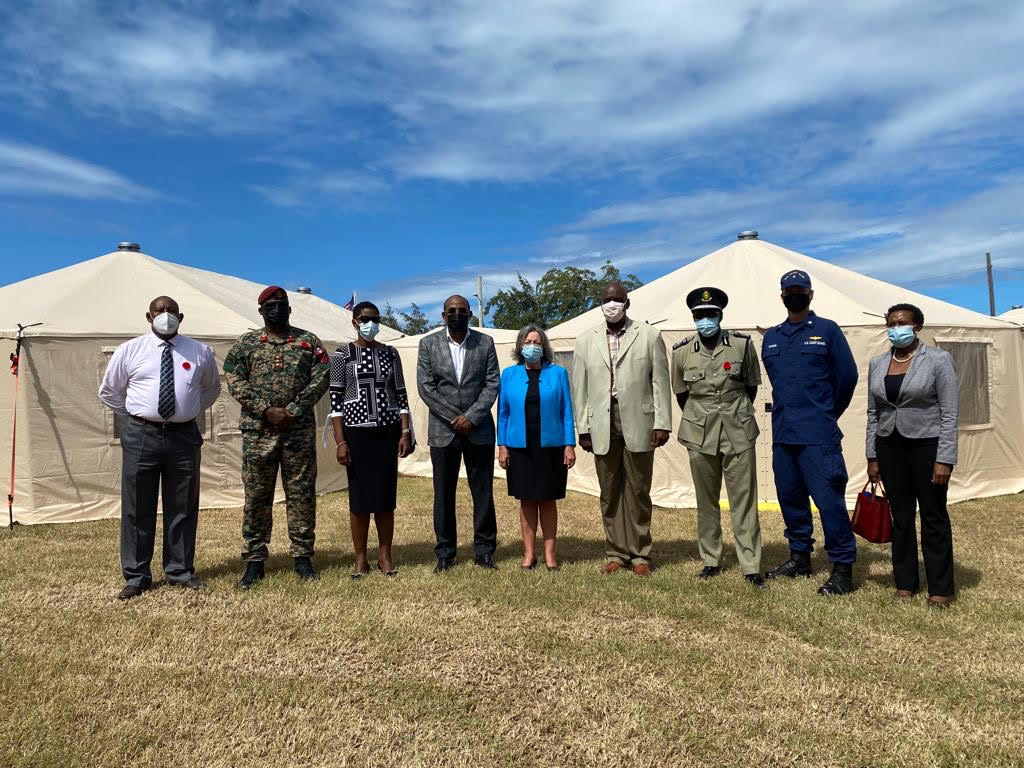By Eleanor Frederick, MSc. MPH
It has taken more than 30 years of research for scientists to develop the technology needed to determine how to effectively deliver to our bodies, vaccines such as those being used against SARS-CoV-2, the virus that causes COVID-19.
We can remember SARS in 2003, it had a fatality rate of 10 per cent, and then, we had MERS in 2012, which had a fatality of 34.3 per cent. Currently, we have SARS-CoV-2, which has a fatality rate of approximately five per cent. However, according to John Hopkins University, the number of cases of infection may be 10 times higher; this is due to the fact that SARS-CoV-2 can be easily transmitted from individuals with no symptoms or mild infection.
The World Health Organization (WHO) states that “an important characteristic of an infectious disease, particularly one caused by a novel pathogen like SARS-CoV-2, is its severity, the ultimate measure of which is its ability to cause death”. Fatality rates help us understand the severity of a disease, identify at–risk populations, and evaluate quality of health care.
When SARS-CoV-2 emerged the technology to produce the vaccines was already in place. More importantly there was global collaboration to produce the vaccines.This was done in parallel as different countries and organizations contributed based on their expertise, and massive funding was made available. This therefore allowed the vaccines to be produced in record time with all the necessary checks and balances and the Food and Drug Administration’s (FDA) approval as the vaccines were given priority.
With COVID-19, as with many infectious diseases, the true level of transmission is frequently underestimated because a substantial proportion of people with the infection are undetected either because they are asymptomatic or have only mild symptoms and therefore fail to present at health-care facilities. In some instances they are reluctant to present to the health-care facilities due to the fear of contracting COVID-19 because the facilities are overrun.
Lau, et al in the journal of Pulmonology, 2020 states that there may also be neglected or under-served segments of the population who are less likely to access health care or testing. Under-detection of cases may be exacerbated during an epidemic, when testing capacity may be limited and restricted to people with severe case and priority risk groups (such as front-line health-care workers, elderly people and people with comorbidities). Cases may also be misdiagnosed and attributed to other diseases with similar clinical presentation, such as influenza (flu).
According to the Centers for Disease Control (CDC),” viruses constantly change through mutation, and new variants of a virus are expected to occur. Sometimes new variants emerge and disappear. Other times, new variants persist. Numerous variants of the virus that causes COVID-19 are being tracked in the United States and globally during this pandemic”.
It is further stated that “SARS-CoV-2 currently has approximately 12,700 identified mutations. It mutates every 11-15 days, which is about half the rate of influenza and about a quarter of the rate of HIV mutations. Mutations generate variability within a population, which allows natural selection to amplify traits that are beneficial, in this case, to the viral particle”.
SARS-CoV-2 viruses are spherical with diameters of approximately 125 nm. The most prominent and important feature of the virus is the club S shaped spike proteins on the surface. The virus cannot enter our cells without the spike protein, which attaches to our cell membrane. It enters our cell by using a lock and key mechanism with the aid of an enzyme called the Angiotensin Converting Enzyme (ACE). Therefore, the spike protein was used in the production of the vaccines since the virus cannot do without it. Further, scientists utilized the same mechanism that the virus uses to enter our cells to allow the vaccines to gain entry to our cells.
Within the envelope of the virus is the single stranded Ribonucleic Acid (RNA); the virus’s genetic material. When an individual becomes infected with SARS-CoV-2, the virus targets the lung cells or pneumocytes. After entering the cell, the virus takes over the cell’s machinery and our cells are made to produce SARS-CoV-2. New viruses are released and the cell is destroyed.
That process continues as the virus tries to destroy as many cells as possible. If the person is unvaccinated the process continues as the new viruses are released and move on to destroy more cells, this could lead to death. In the vaccinated person the virus may enter the body, however antibodies will be produced because the virus is identified as an intruder and the antibodies against the virus kills the virus and infection does not occur or is not as severe.
According to Ben Larman of John Hopkins University,” antibodies are proteins created by the body’s immune system to fight a particular virus, such as SARS-CoV-2. Antibodies are very specific for their intended target. So antibodies directed toward one virus would not protect the body from another”. Under normal circumstances the body may take 14 days or more to mount an immune response to SARS-CoV-2. However, if we are vaccinated our body is able to recognize the virus right away and mount an immune response by producing antibodies.
If we are not vaccinated we will not be able to mount an immune response against the virus. In the case of those who have been infected with COVID-19, they will mount an immune response, however, how long the immunity lasts or how effective it will be varies. Therefore, it is usually recommended that they are given the vaccine at a time to be determined by their physician. It is therefore important that individuals get vaccinated if possible.
In Antigua and Barbuda there are five vaccine options available; Pfizer-BioNTech, Moderna, AstraZeneca, Johnson & Johnson, and Sinopharm. Many individuals are reluctant to take the vaccines because of what they think they contain. According to the FDA the following materials are incorporated in Pfizer-BioNTech, Moderna and Johnson & Johnson. As of August 2021, AstraZeneca was not approved by the FDA
- mRNA – mRNA from the S shaped spike protein on the outside of the virus (mRNA IS USED, NOT THE WHOLE VIRUS AND DEFINITELY NOT THE RNA THE mRNA NEVER ENTERS THE NUCLEUS OF OUR CELLS WHERE OUR GENETIC MATERIAL – DNA IS LOCATED).
- Water.
- Salts – to maintain the right PH.
- Sugars – Basic table sugar, also known as sucrose. Sucrose helps the molecules maintain their shape during freezing.
- LIPID (Fat) – lipid nanoparticles in the case of PfizerBioNTech and Moderna.The lipid nanoparticle encases and protects the mRNA as it is very fragile.
- Adenovirus shell-is used in the case of AstraZeneca and Johnson & Johnson. The outer shell that protects the mRNA is a harmless adenovirus shell.
The WHO has issued interim recommendations for the use of the Sinopfarm COVID-19 vaccine. The vaccine contains inactivated viral particles produced in a laboratory, which are then inactivated so they can’t cause infection. The vaccines contain many proteins the immune system can respond to, stimulating the production of antibodies to fight COVID-19.
After more than 30 years of research scientists were able to use the same mechanism that SARS-CoV-2 uses to infect our cells to allow the vaccines to deliver the mRNA to our cells.The mRNA simply instructs the ribosomes in our cell to produce more protein, in this case antibodies. Soon after entering the cell and sensitizing our immune system to make antibodies against SARS-CoV-2, the mRNA is broken down.
When fully vaccinated our bodies are able to identify SARS-CoV-2 as an intruder; when it enters the body. Immediately our B cells will start to produce antibodies, they will attack the virus and prevent it from multiplying – basically the virus may enter the body of a vaccinated person, however, the antibodies will prevent it from multiplying and therefore prevent infection. In the unvaccinated person, when the virus enters the cell the virus will multiply as there are no antibodies to attack and kill them, therefore infection takes place .More importantly when the virus multiplies, mutations occur which may result in variants which are more easily transmitted and or are more deadly .
The challenge we face is if the current vaccines do not identify the variants because the spike protein has changed. Therefore, even those who are vaccinated will not be protected against the new variants The current vaccines still identifies the spike protein on all the variants though to varying degrees, therefore those who are vaccinated are still protected from infection or severe disease. We now have a new variant of concern, Mu; at present its characteristics are still being determined.
We ALL need to do our part to prevent SARS-CoV-2 from mutating by taking the vaccines after consultation with our healthcare providers. We must also continue to wash our hands frequently, use hand sanitizers, wear face masks and stay at least six feet apart especially when in crowded environments. It is also important that we continue to boost our immune system by eating well, sleeping and incorporating practices that will be complementary to the vaccine for our safety. Remember SARS-CoV-2 makes no distinction and knows no borders. Do not become the person in which the next BIG variant of concern emerges.





















One response to “To vaccinate or not to vaccinate? Do not allow your body to produce the next COVID-19 variant of concern”
All this just BS!! Riddled with lies